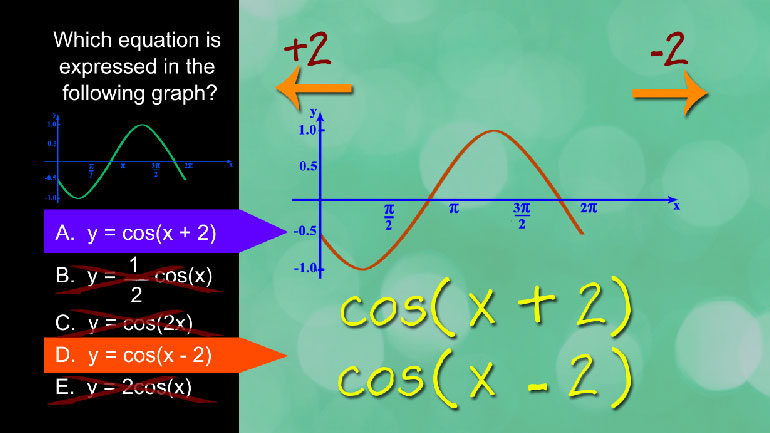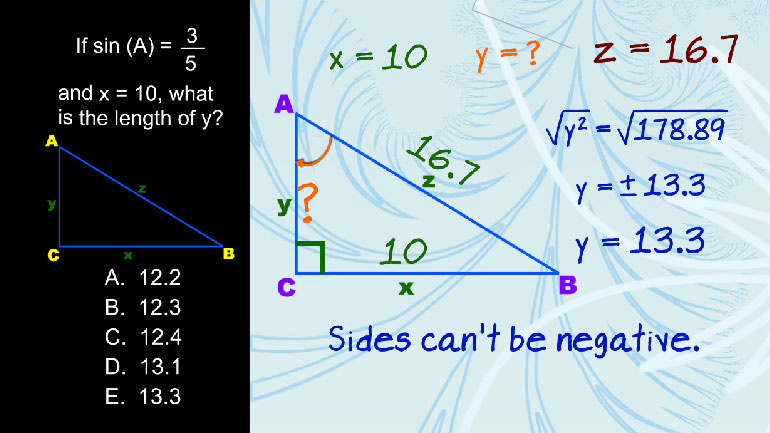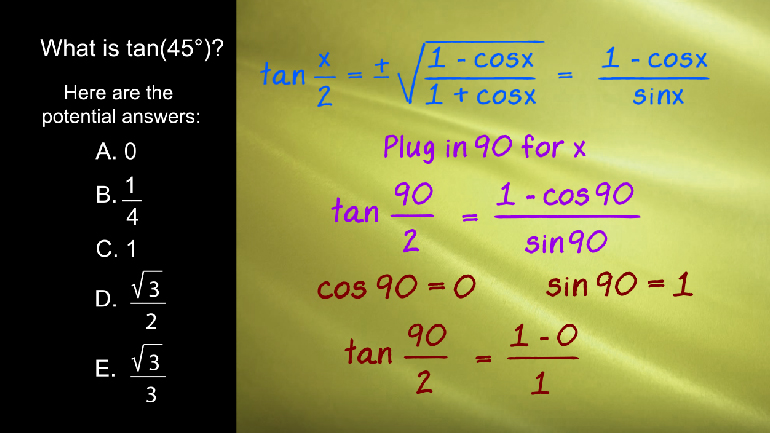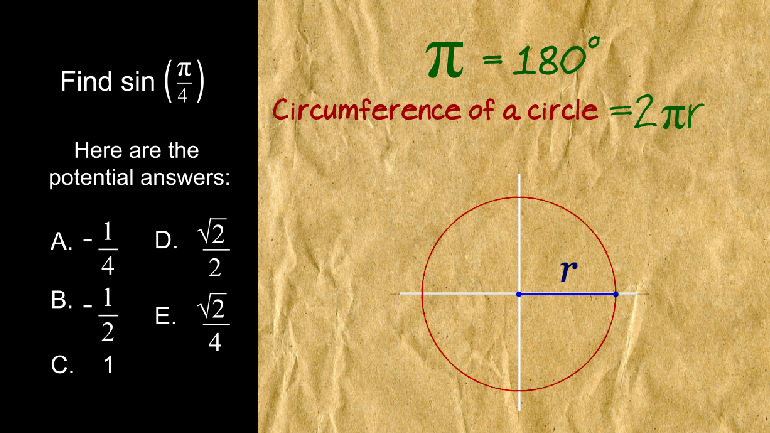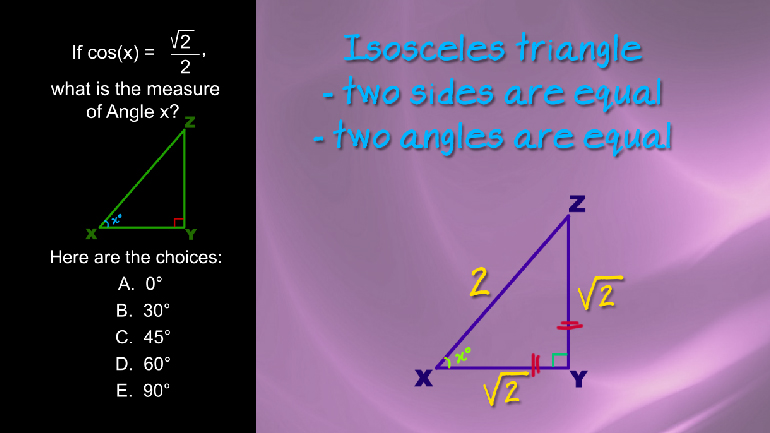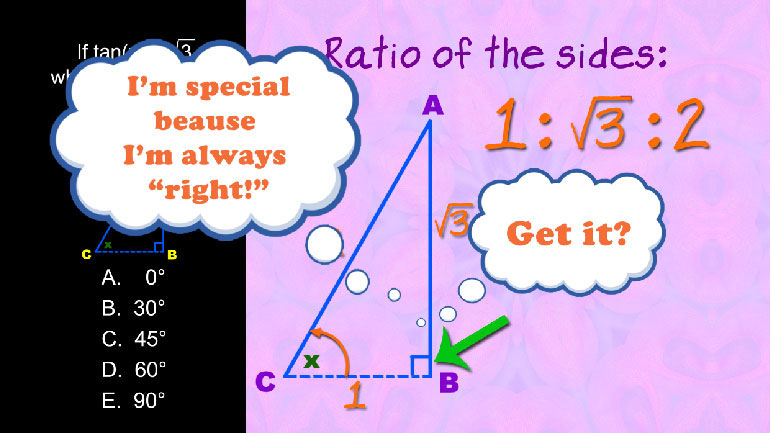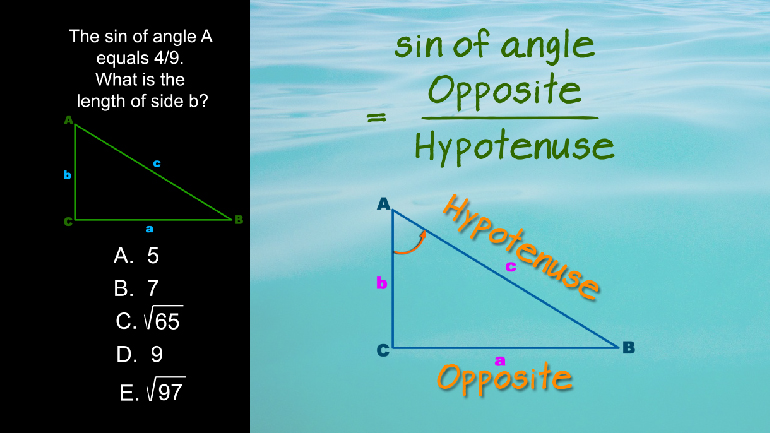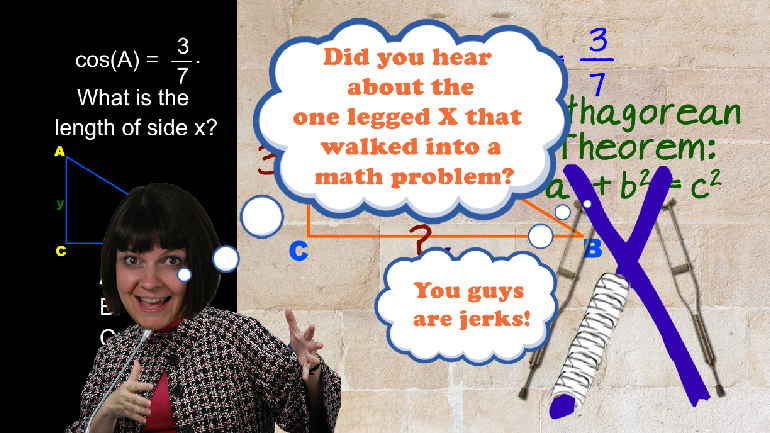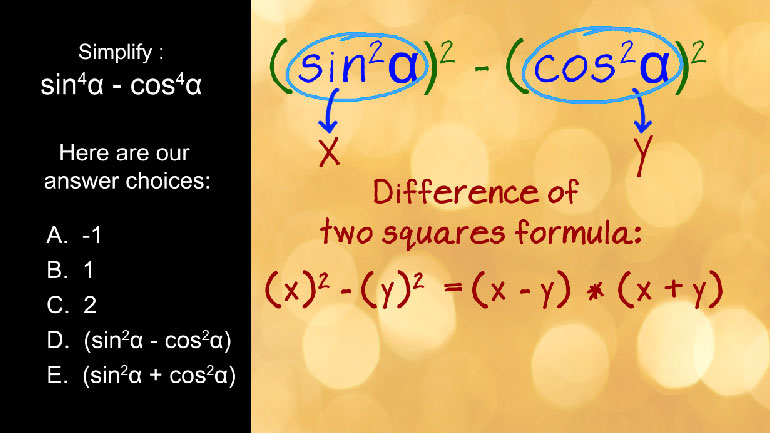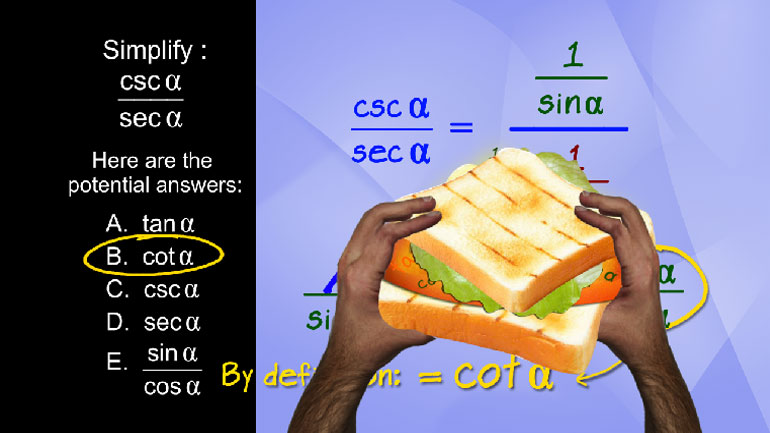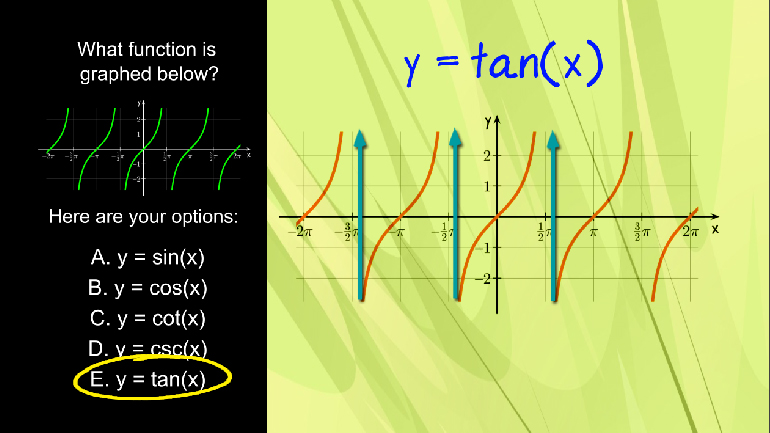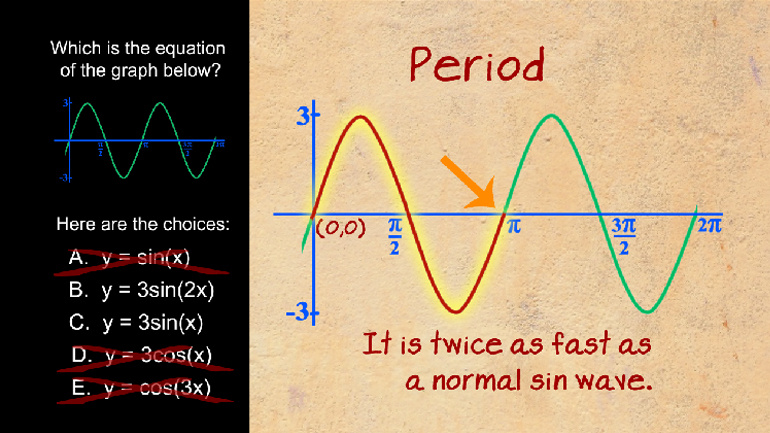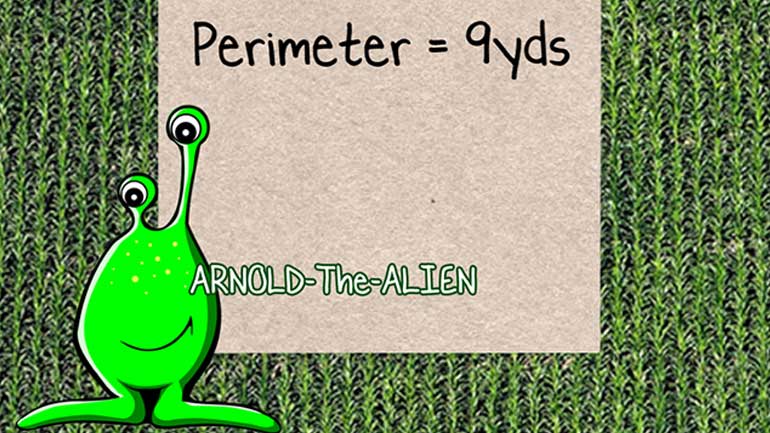ShmoopTube
Where Monty Python meets your 10th grade teacher.
Search Thousands of Shmoop Videos
Trigonometry Videos 26 videos
ACT Math: Trigonometry Drill 1, Problem 1. What is the length of y?
ACT Math Trigonometry Drill 1, Problem 2. Can you find the tangent?
ACT Math 2.4 Trigonometry 257 Views
Share It!
Description:
ACT Math: Trigonometry Drill 2, Problem 4. Which formula does the graph in the video represent?
- Trigonometry / Trig graphs
- Product Type / ACT Math
- Foreign Language / Arabic Subtitled
- Foreign Language / Korean Subtitled
- Foreign Language / Spanish Subtitled
- Foreign Language / Chinese Subtitled
- Functions / Model periodic phenomena with trigonometric functions
- Functions / Model periodic phenomena with trigonometric functions
- Trigonometry / Graphing trigonometric functions
Transcript
- 00:02
Here's your shmoop du jour...
- 00:04
The graph represents which formula?
- 00:07
And here are your options...
- 00:11
Well, if we noticed the irregularities in the cos graph, we can get some clues about
- 00:16
the answer. This figure is... really curvy.
Full Transcript
- 00:19
But, because it's so curvy... its period
- 00:22
is probably smaller than usual.
- 00:24
Because it is expressed by a coefficient greater than 1 in the parentheses; only answer choices
- 00:30
A, C, and D have that. As for its amplitude, it seems to reach 3
- 00:35
and negative 3, so there should be a 3 before the cos itself.
- 00:39
Of the three answer choices mentioned before, this is represented in choice A, which turns
- 00:44
out to be our answer. So it's A!
Related Videos
ACT Math: Plane Geometry Drill 3, Problem 1. What is the area of the trapezoid shape in the video?
ACT Math: Coordinate Geometry Drill 1, Problem 1. Which inequality is expressed by the number line?
ACT Math: Intermediate Algebra: Drill 3, Problem 1. Find the fifth number in the series.
Haven't you always wondered how much cardboard it takes to encase a trunk warmer for your pet elephant?
Want to figure out the area and perimeter of irregular shapes? Break them down into regular shapes. For example, a flower can be broken down into s...
